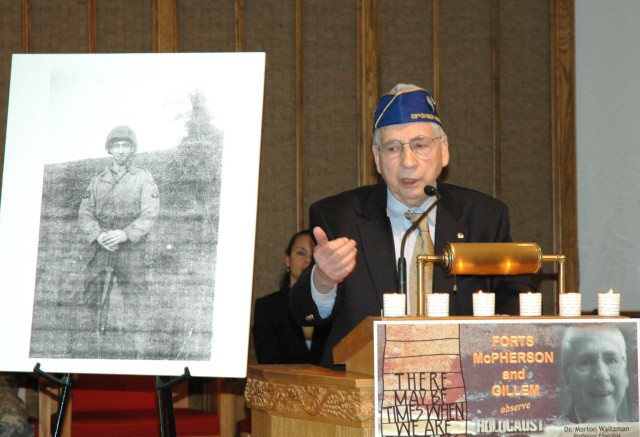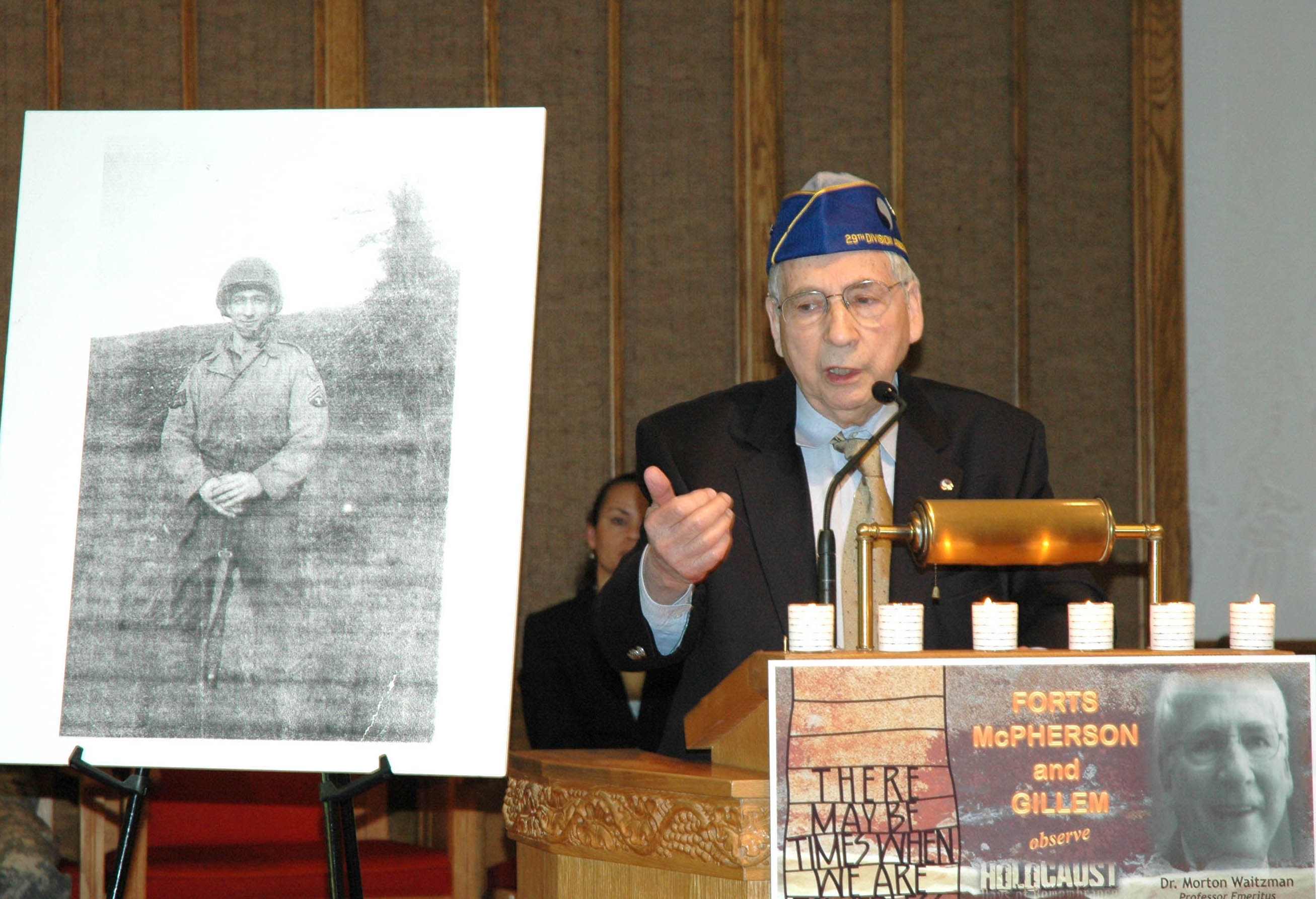
Dr. Morton Waitzman, a retired professor and director of ophtalmology at Emory University, stands next to a picture of himself taken during World War II. Waitzman served in the 29th Infantry Division and was involved in multi... VIEW ORIGINAL
FORT MCPHERSON, Ga. -- He had seen combat on the shores of Normandy, France, during the D-Day invasion and witnessed friends drowning in the English Channel, gunned down by German defenders or torn apart by the booby traps he and his fellow engineers were removing to facilitate the Allied advance. Yet none of that would prepare him for the sights he would see later in the war.
"I saw what is too horrible to behold," said Dr. Morton Waitzman, a World War II veteran with the 29th Infantry Division. "To see what humans did to each other."
Waitzman took time to share the sights he saw to members of the Fort McPherson community April 21 at the Holocaust Days of Remembrance observation at the Fort McPherson Chapel. Those memories included the horrors of forced labor camps at German towns like Gardelegen, where more than 1,000 prisoners were burned alive, or the Dachau concentration camp, where the stench of bodies lying on the street greeted his unit.
Although Waitzman spends a lot of his time educating others on the Holocaust, it wasn't always the case.
"I didn't know what to do. I had to put it behind me," said Waitzman, who did so by focusing his energy on his education. "My family can attest that I didn't speak about it for 50 years."
Although much of his time after the war was spent educating himself, eventually becoming a professor and former director of ophtalmology at Emory University, the realization that he needed to educate others about his war experiences occurred during the 50th anniversary celebration of D-Day. Waitzman said the flood of memories made him realize that he could no longer hide the story.
"I helped liberate concentration camps. I'll never forget and I won't let you forget. Things are more likely to happen if people don't know these stories," he said, a fitting remark considering the theme of the remembrance: "Never Again: What You Do Matters."
"Never again: these two simple words convey that we'll never let what happened 60 years ago happen again," said Col. Deborah Grays, U.S. Army Garrison commander.
Education is important because it is the best tool to expose such tragedies and help limit their scope, said Sara Dermer, Waitzman's granddaughter.
"Ignorance is what stops people from being proactive. We need to ask 'what can I do'' and do what we can," she said.
One small way everyone can contribute is to avoid becoming indifferent to the suffering of others, Dermer said.
If left unchecked, such indifference can eventually cause such hate to leak its way into our own society and homes, Grays added.
With stories of ethnic cleanings occurring throughout African countries like Darfur and Rwanda, now is an important time to speak out against the evils of man against his fellow man, Waitzman said.
The recent stream of Holocaust deniers also adds to the importance of his mission, he added.
"How can people be so stupid, so hateful," Waitzman said of those denying the atrocities he witnessed. "We saw it with our own two eyes, smelled it."
Although audience members couldn't smell it, there were many pictures around the chapel showing the scenes Waitzman witnessed, graphic scenes of rows of bodies rotting in the street or mass graves.
But not all was gloom and doom. Waitzman spoke of the good that came out of the actions he and his fellow Soldiers took against genocide committed by the Nazis in World War II. He spoke of how at one of his speeches he met Matthew Sikorski, a Polish Catholic who was rescued by Waitzman's unit.
Although most people won't experience such tangible proof of their actions, they can help bring about a better society and reduce the possibility of future genocide with one simple action, Waitzman said.
"Love your fellow man. Do what you can for him."

Social Sharing